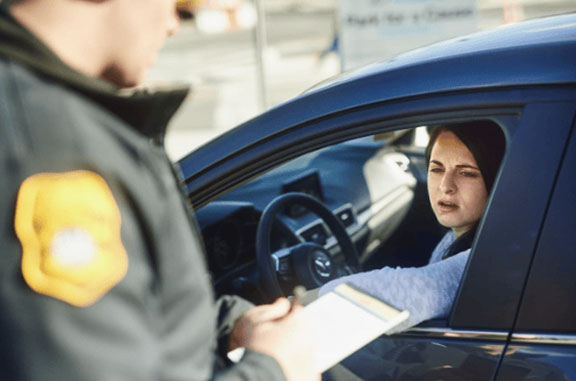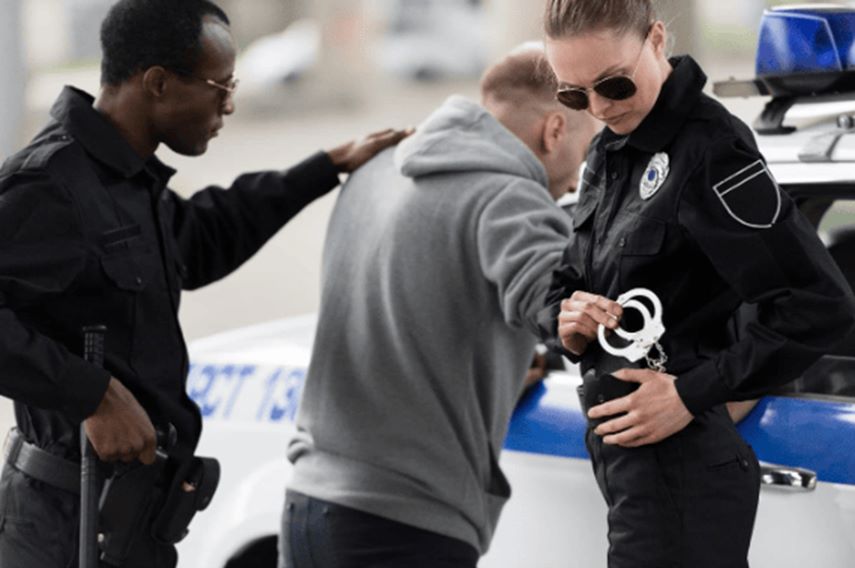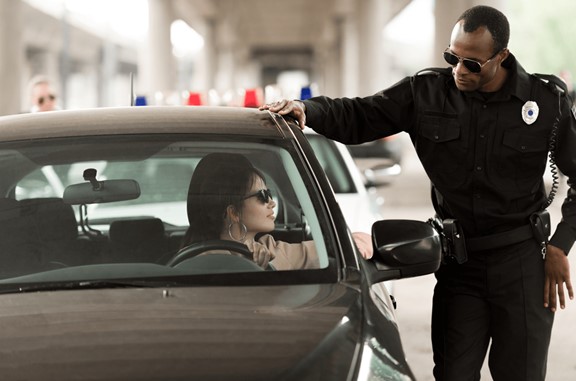Navigating Michigan’s driving laws can be complex, especially when your driver’s license is at risk. Whether suspended or revoked, understanding your options for license restoration is crucial. Here are essential insights from a license restoration lawyer to help regain your driving privileges.
1. Reasons for License Revocation in Michigan
Driver’s licenses in Michigan can be revoked for various reasons. Accumulating too many points from violations such as speeding or reckless driving can lead to revocation. More severe offenses, such as Operating While Intoxicated (OWI) or habitual offenses, can also result in losing your driving privileges.
Understanding these violations is the first step toward reinstatement. Here’s a quick list of reasons why your license might be revoked or suspended in Michigan.
Major Violations Leading to Revocation/Suspension
- DUI/OWI Convictions (Michigan uses the term OWI, rather than DUI):
- Two DUI/OWI offenses within seven years or three within ten years.
- High Blood Alcohol Content (BAC) offenses (0.17% or higher).
- Felonies Involving a Vehicle:
- Vehicular manslaughter or homicide.
- Using a vehicle to commit a felony.
- Hit-and-Run Offenses:
- Leaving the scene of an accident involving injury or death.
- Fleeing or Eluding Police:
- Attempting to evade law enforcement in a motor vehicle.
- Habitual Traffic Violations:
- Repeated serious violations, leading to a habitual offender status.
Administrative & Legal Reasons
- Failure to Submit to Chemical Testing:
- Refusal under Michigan’s Implied Consent Law can result in revocation.
- Serious Points Accumulation:
- Accumulating enough points (from traffic violations/moving violations) that the Secretary of State deems you unsafe to drive.
- Fraudulent Activity:
- Using false information to obtain a license or engaging in fraud related to driving privileges.
Medical & Physical Conditions
- Medical Conditions Affecting Driving Ability:
- Physical or mental conditions deemed dangerous, such as severe epilepsy or cognitive impairments.
- Vision Impairment:
- Inability to meet minimum vision requirements for safe driving.
Other Serious Offenses
- Driving on a Suspended or Revoked License:
- Continuing to drive after your license has been suspended or revoked.
- Drag Racing or Reckless Driving:
- Engaging in dangerous driving behaviors that endanger public safety.
- Driving Without Mandatory Insurance:
- Operating a vehicle without proper insurance coverage.
Penalties for Minors
- Minor in Possession of Alcohol While Driving:
- Underage drinking and driving offenses.
- Zero Tolerance Violations for Minors:
- Driving with any detectable alcohol level (underage drivers).
License revocation is often more severe than suspension, requiring an application for reinstatement and a hearing before the Driver Assessment and Appeal Division (DAAD). Keep in mind, with some of these issues, such as permanent visual impairment, driver’s license restoration might not be possible.
2. The Michigan Driver’s License Point System
In Michigan, traffic violations are assigned point values based on their severity. Accumulating too many points within a specific timeframe can lead to warnings, required examinations, or even license suspension.
Accumulating 12 points within two years can result in suspension. Familiarity with this system helps avoid pitfalls leading to revocation. Here’s a breakdown of common violations and their corresponding points:
6-Point Violations:
- Manslaughter, negligent homicide, or other felony involving vehicle use
- Operating while intoxicated (OWI) or under the influence of drugs
- Reckless driving
- Fleeing or eluding a police officer
- Refusal to take a chemical test
4-Point Violations:
- Drag racing
- Operating while visibly impaired
- Driving 16 mph or more over the speed limit
- Failure to yield to an emergency vehicle
3-Point Violations:
- Careless driving
- Disobeying a traffic signal or stop sign
- Improper passing
- Driving 11-15 mph over the speed limit
2-Point Violations:
- Driving 10 mph or less over the speed limit
- Open alcohol container in the vehicle
- All other moving violations not specifically mentioned
License Suspension Thresholds:
- 4 Points: You may receive a warning letter from the Michigan Secretary of State (SOS).
- 8 Points: A second warning letter may be issued.
- 12 Points: You’re likely to be scheduled for a driver reexamination, which can include vision, knowledge, and road tests. Based on the results, the SOS may decide to restrict, suspend, or revoke your license.
Points remain on your driving record for two years from the date of conviction. Accumulating points can also lead to increased insurance premiums. To mitigate points, you might be eligible to complete a Basic Driver Improvement Course (BDIC), which can prevent certain points from being added to your record. Eligibility and course availability can be confirmed through the Michigan SOS.
 3. Key Requirements for Restoration
3. Key Requirements for Restoration
License restoration in Michigan is the legal process of regaining driving privileges after suspension or revocation, requiring meeting specific criteria to ensure safe driving. A driver’s license restoration lawyer can guide you through this complex process, ensuring all requirements are met.
Restoring a revoked license often involves meeting several requirements. For OWI/DUI-related revocations, demonstrating sobriety is essential, including undergoing evaluations and providing support letters. These steps are crucial to showing commitment to a substance-free lifestyle and a revoked license lawyer can be a huge help with this process. Here’s a deeper look at these requirements.
Sobriety Requirements
Restoring your driver’s license typically begins with proving your commitment to sobriety. Here’s what you need to know:
- Proof of Sobriety: Most states require you to demonstrate a specific length of sobriety before your application will be considered. This can range from six months to several years, depending on the nature of your offenses and the laws in your state.
- Evidence Needed: Common forms of evidence include attendance records from support groups like Alcoholics Anonymous (AA), completion certificates from rehabilitation programs, and regular alcohol or drug testing results. Keeping detailed and organized records is crucial to presenting a strong case.
Substance Use Evaluations
A substance use evaluation is a critical component of the driver’s license restoration process. This assessment determines whether you are at risk of relapsing and if you’re prepared to safely operate a vehicle.
- Importance of a Thorough and Credible Evaluation: A well-documented evaluation conducted by a licensed professional can significantly impact the outcome of your case. It provides the court or licensing board with a comprehensive view of your progress and commitment.
Tips on Choosing the Right Evaluator:
- Ensure the evaluator is licensed and experienced in substance use disorders.
- Choose someone familiar with the requirements of your state’s licensing board.
- Request recommendations from legal professionals or support groups.
- Confirm that the evaluator’s report will include all required details, such as treatment history, current progress, and any recommendations for ongoing care.
Letters of Support
Letters of support from family, friends, and colleagues can strengthen your application by providing personal insights into your sobriety and character.
How to Gather Effective Letters:
- Choose individuals who can speak firsthand about your commitment to sobriety and lifestyle changes.
- Provide letter-writers with guidance on what to include, such as examples of your dedication to sobriety, reliability, and improved behavior.
- Aim for letters from a variety of sources, including employers, mentors, and support group members, to offer a well-rounded perspective.
Common Mistakes to Avoid:
- Avoid letters that are too brief or vague, as they may not adequately support your case.
- Ensure the letters are honest and free of exaggeration. Licensing boards often scrutinize these documents for authenticity.
By meeting these key requirements, you can demonstrate your readiness to regain driving privileges and show that you are committed to maintaining a safe and sober lifestyle. As a license restoration attorney, I can provide guidance and help ensure that all of these steps are completed properly.
4. Revocation Vs. Suspension
Understanding revocation and suspension distinctions is vital. Suspension is temporary, often ending after a set period and fee payment. Revocation means the license is void, requiring restoration to regain it. This distinction impacts your approach to Michigan driver’s license restoration.
5. Restricted vs. Full License Restoration
Fulfilling restoration requirements might allow you to obtain a restricted license before full reinstatement. A restricted license allows driving under specific conditions, like work commutes. It demonstrates responsibility to handle full privileges, paving the way for full reinstatement of a driver’s license in Michigan.
 6. Preparing for the DAAD Hearing
6. Preparing for the DAAD Hearing
A critical step in restoration is the Driver Assessment and Appeal Division (DAAD) hearing, where you present your case. Common questions revolve around driving history and sobriety efforts. Practicing testimony is vital for a coherent and convincing case. An expert drivers license attorney can help prepare effectively.
7. Benefits of Hiring Driver’s License Attorneys
As you can see from the facts above, navigating license restoration alone can be overwhelming. A restoration lawyer brings expertise, increasing chances of success. They assist with hearings, documentation, and strategies for maintaining your license.
8. Maintaining Your License After Restoration
Once your license has been restored, maintaining good driving habits is crucial. Avoid further violations by adhering to traffic laws. Regularly check your driving record to stay aware of issues. Defensive driving courses also can help maintain privileges.
Schedule A Consultation Today!
Understanding license suspension, revocation, and restoration is pivotal to regaining driving privileges. A driver license attorney provides valuable insights for a successful reinstatement, emphasizing safe and responsible driving. Choosing the right law firm with expertise in Michigan’s legal system enhances your chances of smoothly having your license reinstated and regaining full driving privileges.
At Lievois Law, we handle hundreds of license restoration cases every year and have a 95% success rate in restoring driving privileges. Contact us today to schedule a free consultation with an expert Michigan license restoration lawyer.







